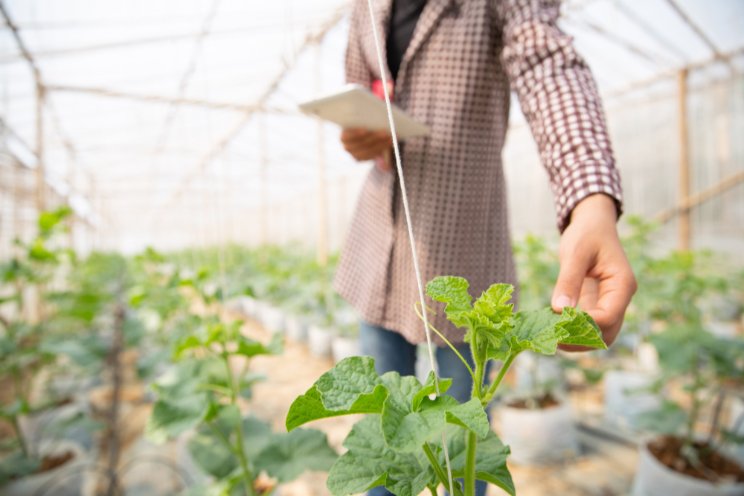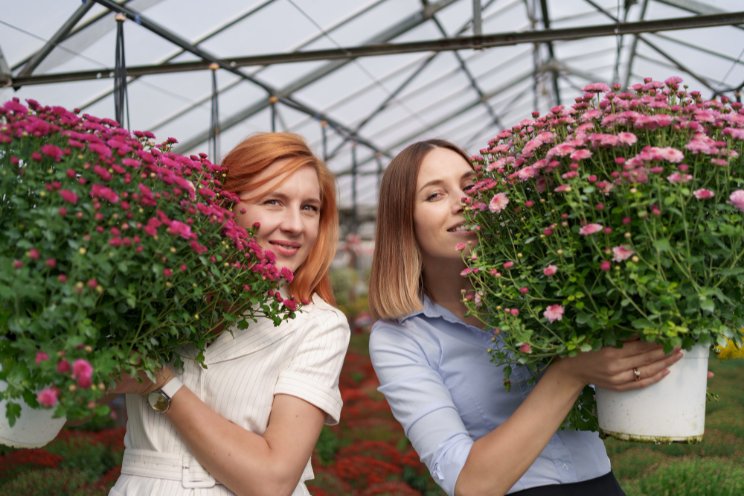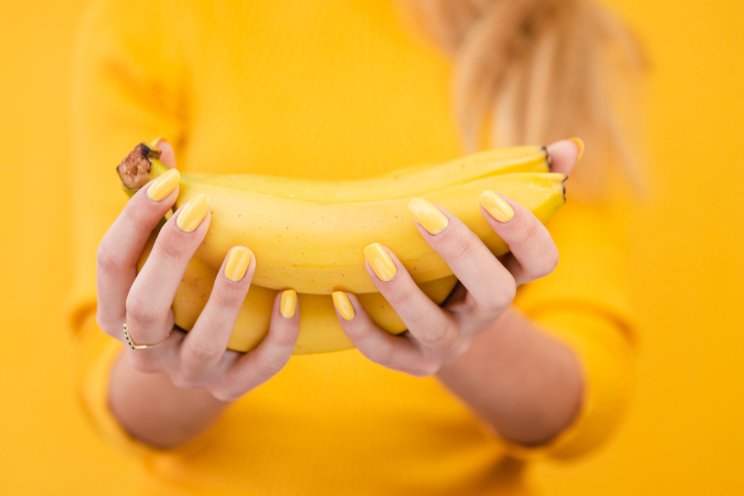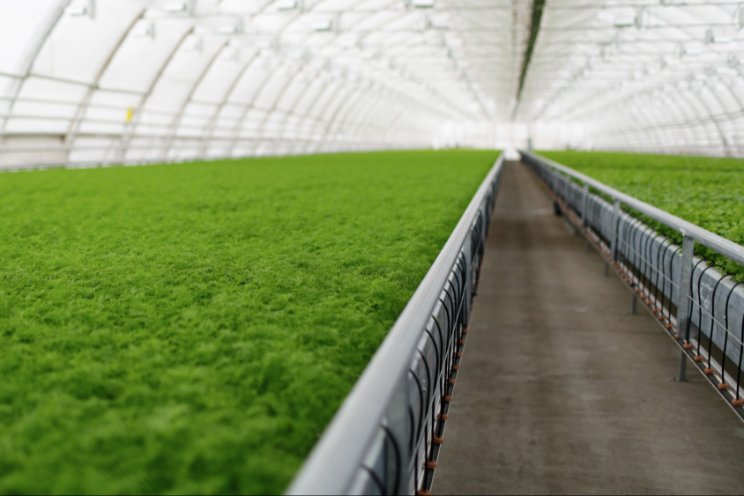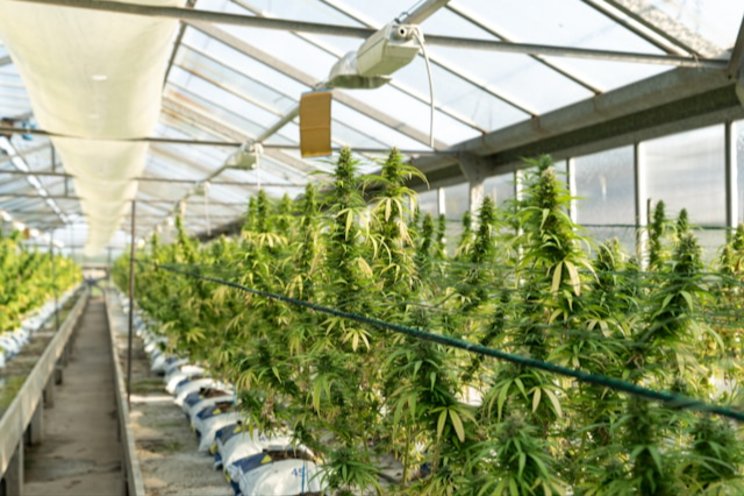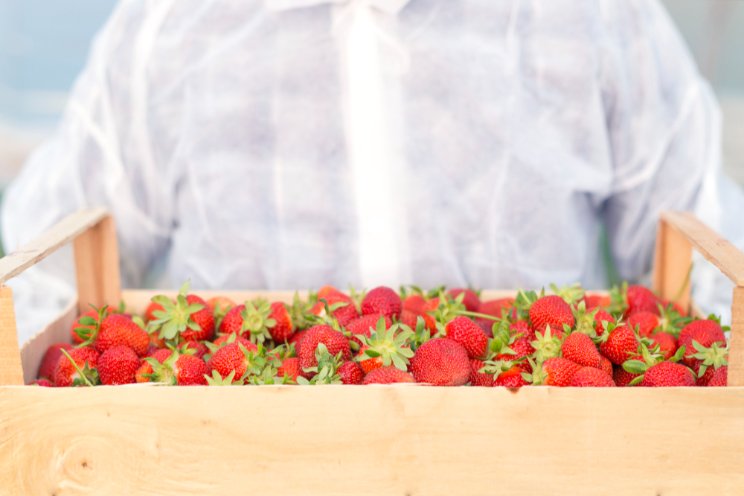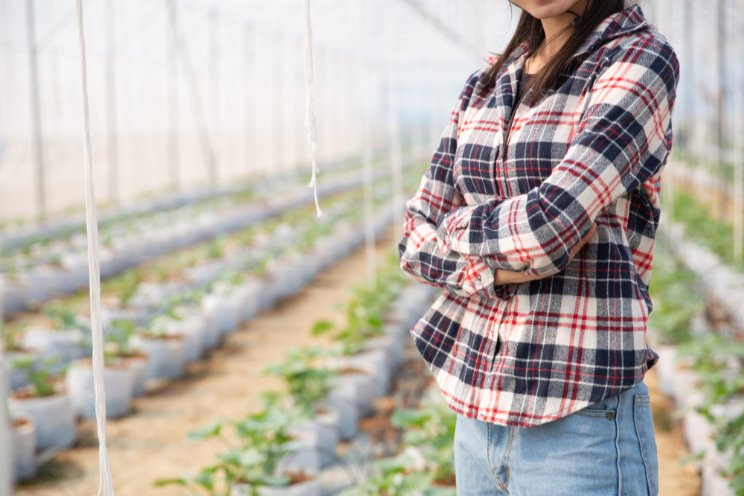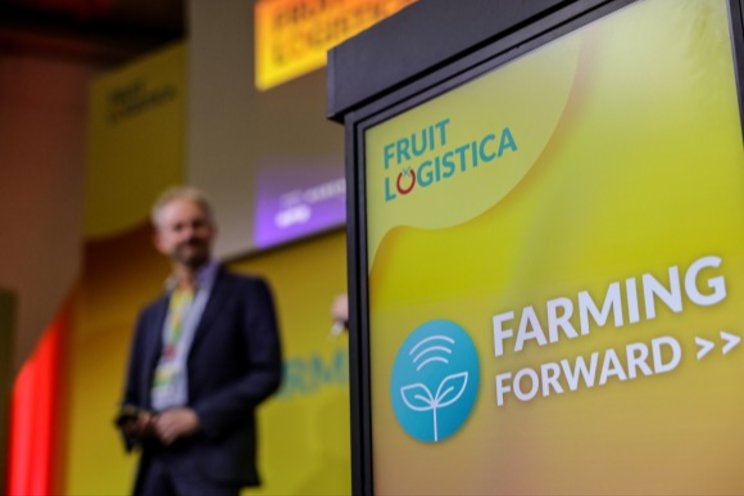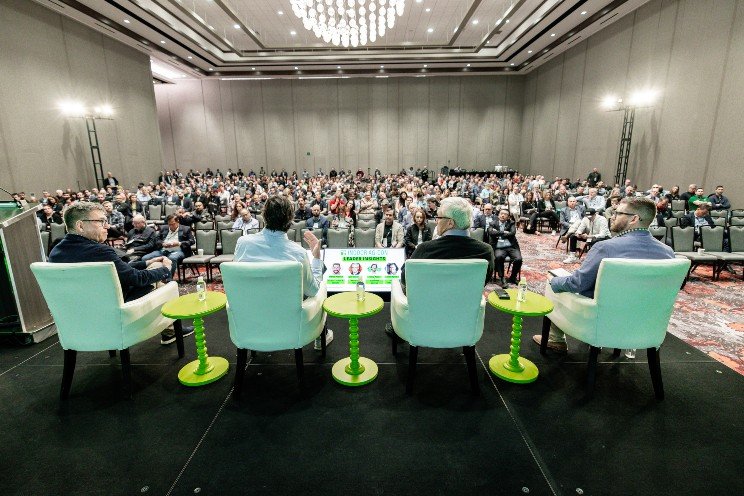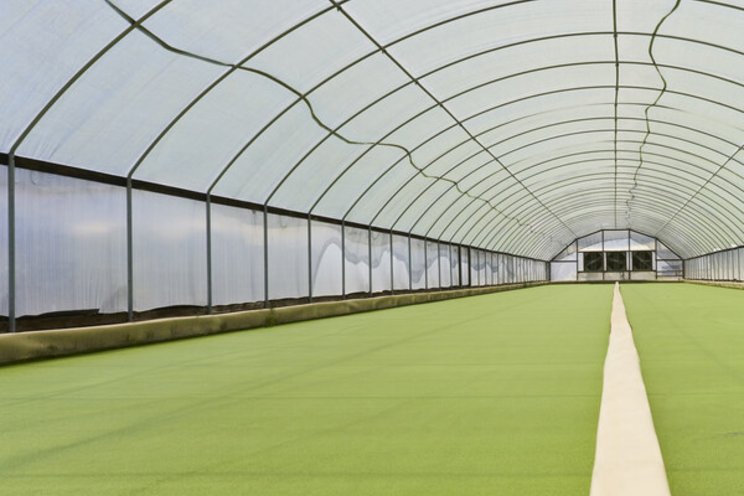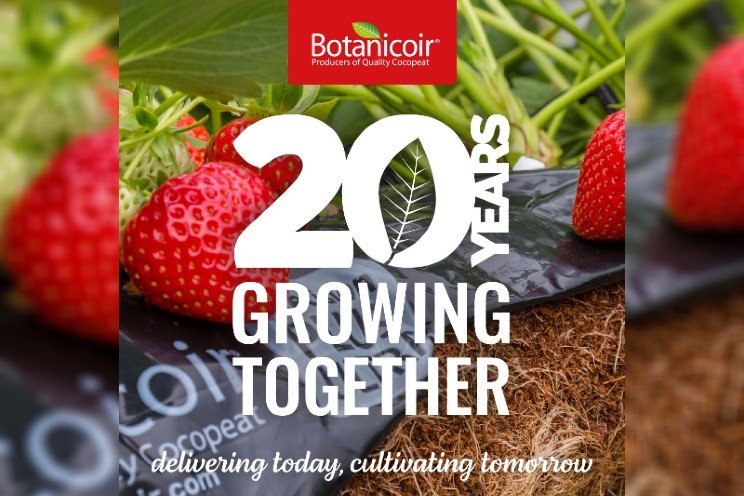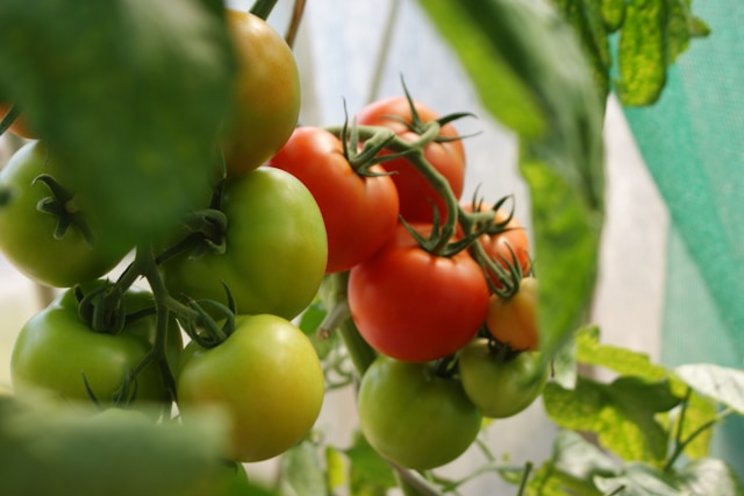This ordinary beige building is the future of farming
Added on 10 August 2020
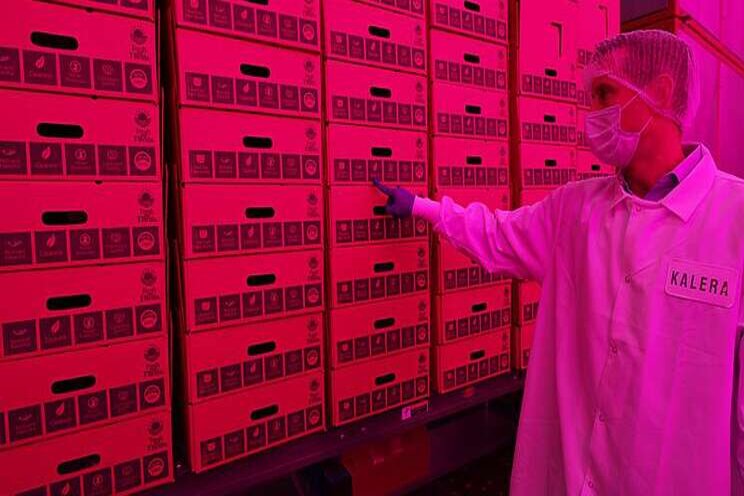

Butter lettuce grows at Kalera's vertical hydroponic farm in Orlando. (Ricardo Ramirez Buxeda/Orlando Sentinel)
To motorists whizzing past, it likely registers as a storage facility — if it even registers at all.
The entry — save the colorful logo, is generic as well, though a window in an adjacent conference room offers a glimpse of the marvels inside. Nine towering tiers, shelving awash in a glow I'd call "Rave-X Pink" if it were a nail polish, house lush, growing plants as far as your color-addled eyes can see.

Red Oakleaf grows at Kalera's vertical hydroponic farm in Orlando. (Ricardo Ramirez Buxeda/Orlando Sentinel)
It conjures sci-fi imagery — a space station farm, a future where we've colonized distant planets, that perpetually cruising Starliner from "Wall-E." Except you won't find any septuacentennial cupcake in a cup. Just head after head of flawless, near-identical lettuces in a range of varieties: Bibb, Frisee, Red Oak, others.
The hydroponic facility, headquartered in Orlando, is the highest production volume vertical farm in the Southeast, a grand-scale version of Kalera's smaller HyCube, which opened at the World Center Marriott in 2018 and supplies its hospitality team — and guests — with living produce that's pretty much literally pick-to-plate.
Farm-to-table seems near-lethargic by comparison.
Lettuce harvested at this facility arrives at Publix the very next day. Each container — enough for two entrée salads or four smaller versions — retails for $2.29.

Butter lettuce is one of the varieties that are grown at Kalera's vertical hydroponic farm in Orlando. The majority of lettuce grown in the United States comes from California and Arizona. (Ricardo Ramirez Buxeda/Orlando Sentinel)
In cycles that go from seed to harvest practically down to the minute, Kalera lettuce and microgreens are born together, grow together and head off to market together. And that market is growing by leaps and bounds, despite the facility's opening almost to the day that COVID-19 shut down virtually all of its target customers.
"It was a huge disappointment that we had, for basically a decade, planned for that grand-opening moment and right on the cusp of that, with a model heavily predicated on the food-service side of the business — everything from the Amway Center to major restaurant chains, cruise lines, the convention center — our first harvest came literally on the same day the governor called for the mass shutdown," says CEO Daniel Malechuk.
No basketball. No conventions. Nowhere to send that first wave of product.
"I had about 10 minutes to feel sorry for myself and the company," says Malechuk, "but then it was right back to refocusing and figuring out where all the product could go."
Direct to the consumer, they decided, as people — some newly jobless, many fearful of going to the supermarket for health concerns — needed fresh produce. They organized giveaways and cars lined up for miles as Kalera employees put whole cases of lettuce into the trunk after trunk — touchless delivery of fresh food untouched by human hands until the point of consumption.
"One lady said she'd driven an hour and a half because she couldn't find fresh produce where she lived," Malechuk recalls. "Then there was the nurse who was in tears. She'd gotten special permission to come and get boxes for all the other nurses because at that time many stores were operating on limited hours and by the time most of them got off work they were unable to shop for their families."
What began as a potential disaster pivoted into something that benefited both company and community.
"Not only did we get our product into the hands of people who really needed it, but we were able to introduce ourselves and give them a chance to taste it."
I'd tasted it the day before — from Publix-acquired packaging. It smelled clean and alive, the red oak soft and velvety, the Kalera Krunch as noisy as a potato chip, albeit one made of mountain spring water.
Walking amid the towering rows, too, is sensory overload. Trippy colors, foreign sounds — industrial fans moving air to simulate gentle wind, the pronounced ka-chunk of the transplanter — which moves young plants to larger growing trays at precise intervals in the cycle.

The transplanter machine moves plants to bigger plates so they would have room to grow, at Kalera's vertical hydroponic farm in Orlando. (Ricardo Ramirez Buxeda/Orlando Sentinel)
"I could stare at that all day," Orlando Sentinel photographer Ricardo Ramirez-Buxeda remarked.
Indeed, we were rapt, watching skeletal pincers precision-grab the little sprouts, several at a time, in a manner both haltingly sterile and almost lovingly gentle. Robot mothers amid a mother of an indoor farm.
We had to watch where and what we photographed. Systems here are closely guarded; it's a competitive industry. But the real secret sauce here, Malechuk says, is the intangible farming science behind it that balances light, temperature, airflow and humidity around the clock.

Kalera Krunch Lettuce is harvested, and awaits packaging at Kalera's vertical hydroponic farm in Orlando. There's minimal plant waste in this facility but even that is reused, carted off to be converted into fuel. (Ricardo Ramirez Buxeda/Orlando Sentinel)
"We are 350 times more productive per square foot than a traditional farm," he says. For reference, there are about 44,000 square feet in one acre.
And a whole lot cleaner.
Save the tiny block of peat moss in which each seed uniformly pops and germinates, there is no substrate here. No soil. Nitrogen, phosphorus and other nutrients are delivered in a steady buffet of water that flows through a closed-loop irrigation system.
"Whatever water is not used immediately goes back into the system," says Malechuk. "It uses three percent that of normal farming."
The walls are antimicrobial. The plants give off so much fresh oxygen that Kalera has to bring in carbon dioxide for them to grow adequately. A micro scrubber sucks air in, zapping out contaminants, dust, skin cells — everything. Gentle blowers mimic breezes that encourage growth on each tier of the farm.
Staffers here had no trouble transitioning to COVID-19 protocol in the outside world.
"We joke that we were wearing masks before it was trendy," says Malechuk.

CEO Daniel Malechuk gives a tour of Kalera's vertical hydroponic farm. Its packaging cites the product's many highlight-friendly features. (Ricardo Ramirez Buxeda/Orlando Sentinel)
Before entering the facility, I had to wash my hands, don a hair net, mask and a long lab coat with elastic at the cuffs. Yellow-tint goggles keep the perennial glow of the grow lights from messing with your eyes. It's the standard uniform.
Staffers here seem very proud of what they're doing. And customers? They're elated.
"It was a quality product that stood well above its competition," says Stephen Doyle of his first taste. Doyle is the executive chef at the Alfond Inn in Winter Park, which has been burning through 7-10 cases of the stuff every week for not quite a year. "It's crisp, clean, fresh taste was amazing to me."
The fact that it's environmentally friendly, he says, is a big plus.
"It's more than farm-to-table. It's living-to-table." Indeed, the product — even that sold in Publix — is technically still alive, its small root ball intact. Once twisted off, the leaves fall apart like flower petals, ready to eat. The Kalera Krunch variety is a favorite.
"It's unique in every aspect," Doyle says. "The first time I tried it I was over the moon. I'd found something I didn't know I was looking for and it inspired me to create dishes around the lettuce, not the other way around.

Many islands, due to lack of area, agriculture or proper climate, rely solely on importation for leafy greens. Vertical farming could provide a safe, cost-effective solution, says Malechuk. (Ricardo Ramirez Buxeda/Orlando Sentinel)
A resulting plate — the Fall Winter Salad — featured spiced butternut squash, roasted pecans, Gorgonzola and cranberries with a maple balsamic vinaigrette. It was a huge hit with guests. "They're very excited when I explain the process the lettuce goes through to get to the table."
Other customers include Tavistock's Lake Nona restaurants, such as Chroma and Canvas. Universal, says Malechuk, is a new client; they'll be topping burgers and chicken sandwiches with Kalera lettuce soon. New facilities planned for 2021 in Atlanta and Houston will surpass Orlando in size and spread the hydroponic gospel even further.

Kalera's vertical hydroponic farm in Orlando grows many varieties of lettuce. (Ricardo Ramirez Buxeda/Orlando Sentinel)
So, too, might NASA.
Source: Orlando Sentinel
Source: Orlando Sentinel
More news
